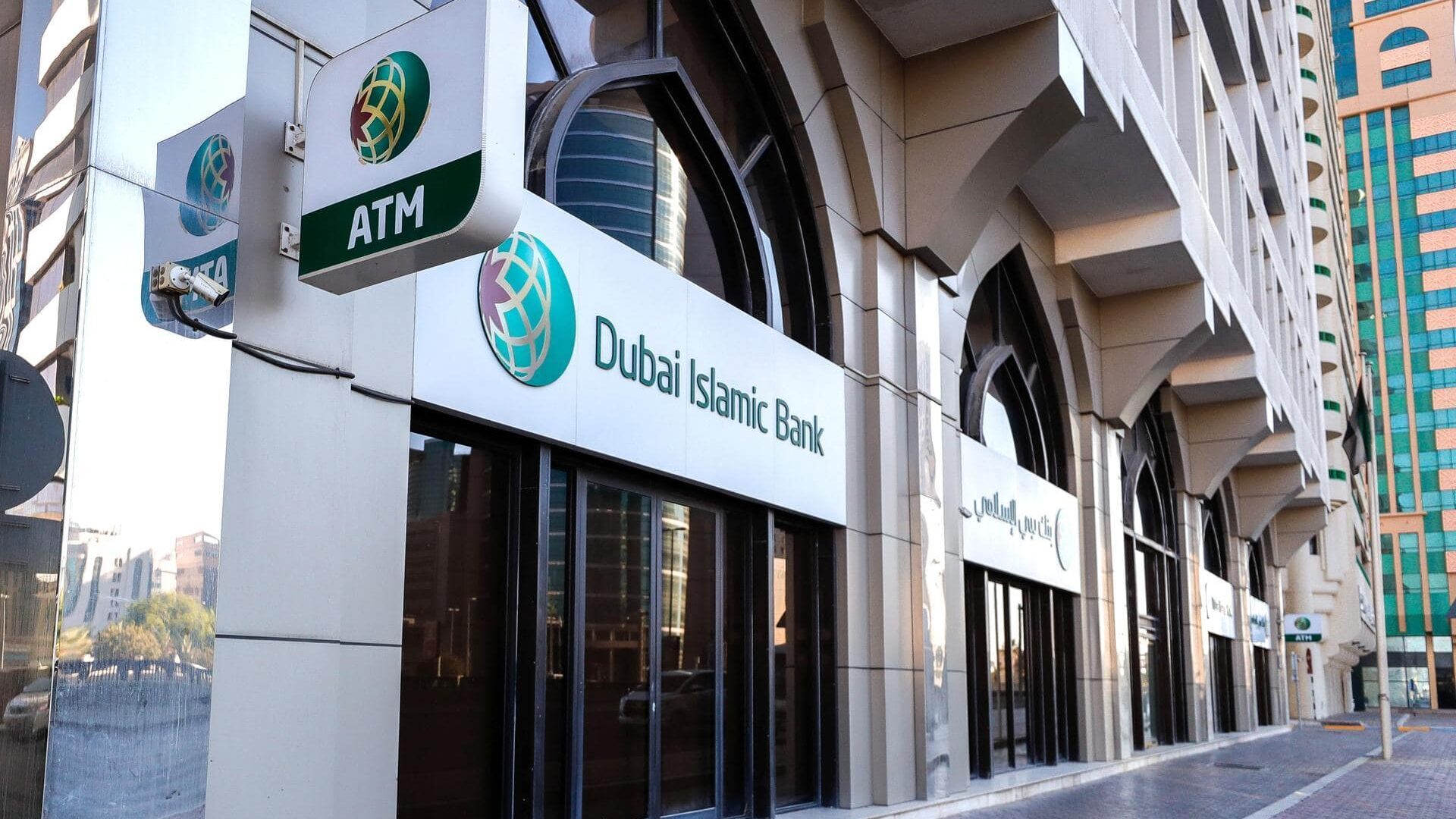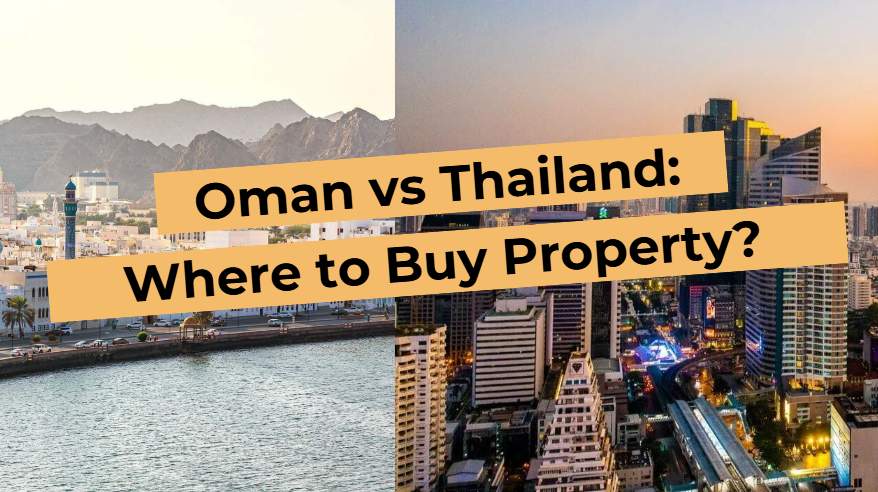


Dubai, known for its high-rise buildings and luxurious living, is also one of the leading financial centers in the Middle East. Due to its strategic location and progressive economic policies, Dubai attracts investors and entrepreneurs from all over the world. In this context, Dubai banks play a key role by offering a wide range of services from commercial and Islamic banking to innovative digital banking solutions. In this article, we will look at key aspects of Dubai's banking system, including the history of development, the main types of banks, the benefits of offshore banking, services for expatriates, and the prospects and challenges facing the sector.
Review of Dubai's financial stability and global reputation
Dubai is actively developing its financial infrastructure, which attracts capital from around the world. The city is striving to become a global leader in financial innovation by introducing advanced technologies, such as blockchain and artificial intelligence, into the banking industry. This not only strengthens the stability of the financial system, but also improves its efficiency and security.
Due to its strategic location at the crossroads between East and West, Dubai serves as a bridge for international trade and financial flows, further enhancing its role as a global financial hub. This attracts international banks and financial institutions to the city, which seek to use it as a platform to access the region's emerging markets.

Dubai's financial stability is underpinned by strict regulatory measures and a modern legislative framework, which makes it attractive to foreign investors and contributes to maintaining a high level of confidence in the local banking system. The UAE Central Bank and Dubai Financial Services are constantly working to improve the regulatory framework and implement international standards in the practices of financial institutions.
Thus, thanks to its progressive economic policy, Dubai not only maintains its reputation as a reliable financial center, but also actively develops it, attracting new investments and expanding opportunities for international business and finance.
History of banking in Dubai
The history of banking in Dubai began with the establishment of the first banks in the mid-20th century. Since then, the sector has grown to a scale comparable to the world's leading financial centers. The development of banking in Dubai has gone through several key phases, from just providing basic banking services to introducing sophisticated investment and financial products, which has contributed to the city's transformation into a global financial hub.
Key milestones in the development of the banking sector
One of the most important milestones in the development of banking in Dubai was the introduction of Islamic banking, which complies with Shariah principles and attracts investors from Muslim countries. This area of banking has been active since the late 1970s and since then has significantly expanded its influence in the region, offering products such as interest-free loans and Islamic bonds (sukuk).
In addition, the active adoption of technological innovations such as blockchain and artificial intelligence has played a key role in strengthening Dubai's position as a center of financial innovation. Blockchain technology is used to increase transparency in financial transactions and reduce fraud risks, while artificial intelligence helps in analyzing big data and automating customer service, which significantly improves the quality and speed of services provided.

Another important moment was the establishment of the Dubai International Financial Center (DIFC) in 2004, which became the first hub in the region to operate according to the standards and norms adopted by the world's leading financial centers. The DIFC provides a unique legal system and judicial infrastructure, which has attracted many international financial institutions.
These key milestones have not only contributed to the growth and development of Dubai's banking system, but have also greatly enhanced its status as a global financial center, attracting capital and investment from around the world.
The first banks and evolution over time
The first bank in Dubai was the British Bank of the Middle East, which opened its doors in 1946. This bank was founded to serve the economic and financial needs of Dubai's growing commercial port. Since then, Dubai's banking system has undergone significant changes, including the emergence of local banks such as Emirates NBD and Dubai Islamic Bank, which are now pillars of the banking industry in the region.
The development of Dubai's banking system is closely linked to the city's economic growth. In 1963, National Bank of Dubai was founded, which later merged with Emirates Bank International to create Emirates NBD, one of the largest banks in the region. This bank played a key role in financing numerous infrastructure projects that helped transform Dubai into a global financial center.

Dubai Islamic Bank, founded in 1975, was the first bank to offer banking services that were fully compliant with the principles of Islamic finance. This opened the door for the development of Islamic banking, which attracted customers looking for alternative financial solutions in line with their religious beliefs.
Over time, Dubai's banking system has continued to adapt and evolve, introducing new technologies and expanding its range of services. The introduction of digital banking and blockchain technology has enabled Dubai banks to improve the convenience and security of banking transactions for their customers, as well as strengthen their position on the international stage as innovative and progressive financial institutions.
Types of banks
Dubai is home to different types of banks, each with its own unique role in the city's financial ecosystem.
Description of commercial, investment and Islamic banks
Commercial banks in Dubai offer a wide range of services including lending, deposits, currency exchange and more. They are the backbone of everyday financial transactions for both individuals and businesses. Commercial banks also offer internet banking, mobile banking apps and other technological solutions that make managing finances more convenient and accessible. These banks play a key role in sustaining economic activity by providing loans to SMEs, which are the backbone of Dubai's economy.
Investment banks specialize in corporate finance services, including mergers and acquisitions, asset management advisory and capital organization. They also provide strategic advice on capital investments and financial restructuring of companies. Investment banks in Dubai are often involved in large cross-border transactions, utilizing their global network and expertise to ensure the best results for their clients. These banks are important in maintaining a dynamic and competitive business environment in the region.

Islamic banks offer financial products that comply with Islamic law. These banks exclude interest (riba) and invest only in sectors that are considered 'halal' (permissible). They use special financial instruments such as Mudaraba (profit and loss partnership) and Musharaka (joint venture), which allow customers and the bank to share risks and profits. Islamic banks also actively develop philanthropic projects through the Zakat (compulsory alms) system, supporting the social and economic development of the community.
These different types of banks provide the full range of financial services needed to sustain and grow Dubai's economy, making it one of the most attractive financial centers in the world.
Offshore banks
Offshore banking in Dubai offers a number of benefits including tax efficiency and privacy. As an international financial center, Dubai provides a high level of asset protection and stability, making it attractive to international investors and those looking for efficient ways to manage their capital. Additionally, offshore Dubai accounts provide convenience in international financial transactions by allowing account holders to easily move funds between countries without significant restrictions or delays. This is especially important for business people with global operations who need quick access to their funds in different currencies.
In addition, offshore banks in Dubai offer top-notch customer service and a personalized approach, which includes personalized financial solutions and advice on tax optimization and asset protection. This creates an added advantage for those looking to maximize their financial capabilities while meeting all necessary regulatory requirements.

Finally, offshore banking in Dubai is backed by state-of-the-art security technologies that guarantee the protection of financial information and transactions. This includes advanced encryption systems and multi-level authentication processes that minimize the risks of fraud and unauthorized access to accounts.
It is also important to consider the risks associated with exchange rate volatility and economic stability. Offshore accounts are often maintained in foreign currencies, making them susceptible to exchange rate fluctuations that can significantly affect the value of assets.
To minimize these risks, it is recommended to carefully select a banking institution with a good reputation, providing a high level of service and complying with international standards. In addition, it is important to regularly consult with financial and legal experts to ensure compliance with all necessary requirements and regulations.
Banking services for foreigners
Dubai is actively attracting foreign professionals and businessmen, which requires local banks to provide specialized services for expats.
Multi-currency and digital banking solutions
To meet the needs of the international community, banks in Dubai offer multi-currency accounts and state-of-the-art digital banking solutions. This allows customers to manage their finances in multiple currencies and access their accounts through smartphones and other digital devices, maximizing convenience and accessibility.
Among the most popular digital banking solutions in Dubai are mobile apps that offer instant money transfer, bill payment, investment management and real-time expense monitoring features. Such innovations not only enhance the usability of banking services, but also improve financial security through built-in security features such as biometric identification and two-factor authentication.

In addition, many banks in Dubai offer integration with popular payment systems such as Apple Pay and Google Pay, allowing customers to make purchases and pay for services using their mobile devices without the need for physical cards. This is especially convenient for international travelers and expats who need to make transactions in different currencies.
Dubai banks are also actively developing and implementing blockchain-based solutions to improve the transparency and security of banking operations. Such technologies not only speed up the transaction process, but also significantly reduce the risks associated with fraud and cyber-attacks.
The implementation of these advanced technologies and digital solutions not only makes banking services in Dubai more accessible and convenient, but also significantly improves their security and efficiency, making Dubai one of the leaders in innovative banking on the international stage.
Best Banks in Dubai
Dubai is home to a host of leading banks that offer a wide range of financial services to local and international customers. Below are some of the most notable and reliable banking institutions in this city.
Emirates NBD - the largest bank in the region, offers a comprehensive range of banking services, including corporate and retail banking, as well as Islamic banking. The bank is known for its innovative digital solutions and active support for SMEs. Emirates NBD also offers unique services such as VIP banking, investment and insurance products, and an extensive ATM and branch network that provides convenient access to financial services across Dubai.
Dubai Islamic Bank - the first fully Islamic bank in the world to combine traditional Islamic banking principles with modern financial products. The bank offers a wide range of products including mortgage lending, corporate finance and investment services. Dubai Islamic Bank is also active in social responsibility, financing various educational and health projects, which emphasizes its commitment to sustainable development and community support.

RAKBANK - is known for its consumer banking products and services, especially in the areas of credit cards and car loans. The Bank is also actively developing the SME sector and offers comprehensive digital banking solutions. RAKBANK stands out for its innovative platform of digital banking services, which includes a mobile application with multiple functions for managing personal finances, as well as offers specifically for startups and entrepreneurs aimed at simplifying banking operations and supporting business growth.
Each of these banks not only contributes significantly to Dubai's economy, but also actively works to improve their services to meet the changing needs of their customers in the rapidly evolving world of financial technology.
Dubai's banking sector plays a critical role in the city's economy, providing the foundation for financial stability and attractiveness for international investment. With a variety of banks offering from commercial to Islamic financial services, Dubai has established itself as a global financial center. With continued technological innovation and a drive to improve banking services, the outlook for Dubai's banking industry remains encouraging despite challenges such as global economic changes and regulatory adaptations.
Dubai's leading banks include Emirates NBD, Dubai Islamic Bank, Mashreq Bank and Commercial Bank of Abu Dhabi.
Yes, foreigners can open bank accounts in Dubai. Banks offer different types of accounts for residents and non-residents.
Banks in Dubai offer savings accounts, current accounts, time deposit accounts and investment accounts.
Yes, there are several Islamic banks in Dubai, including Dubai Islamic Bank and Abu Dhabi Islamic Bank, offering Shariah-compliant financial services.
Generally, you need a passport, visa, Emirates ID card and proof of address to open a bank account in Dubai.
Most banks in Dubai are open from 8:00 am to 3:00 pm from Sunday to Thursday. Some branches may be open longer or open on Saturdays.
Yes, many banks in Dubai offer online account opening services, especially for existing customers or certain types of accounts.
The Dubai International Financial Center (DIFC) is a financial center that offers a platform for financial institutions to operate within an independent regulatory framework.
Yes, most banks in Dubai provide comprehensive digital banking services including mobile apps, online banking and digital payment solutions.
Benefits include access to a stable financial system, tax-free banking for residents, advanced digital services and a wide range of financial products for personal and business needs.
What are the best banks in Dubai?
Dubai's leading banks include Emirates NBD, Dubai Islamic Bank, Mashreq Bank and Commercial Bank of Abu Dhabi.
Can foreigners open a bank account in Dubai?
Yes, foreigners can open bank accounts in Dubai. Banks offer different types of accounts for residents and non-residents.
What types of accounts can be opened with banks in Dubai?
Banks in Dubai offer savings accounts, current accounts, time deposit accounts and investment accounts.
Are there any Islamic banks in Dubai?
Yes, there are several Islamic banks in Dubai, including Dubai Islamic Bank and Abu Dhabi Islamic Bank, offering Shariah-compliant financial services.
What documents are required to open a bank account in Dubai?
Generally, you need a passport, visa, Emirates ID card and proof of address to open a bank account in Dubai.
What are the opening hours of banks in Dubai?
Most banks in Dubai are open from 8:00 am to 3:00 pm from Sunday to Thursday. Some branches may be open longer or open on Saturdays.
Can I open a bank account online in Dubai?
Yes, many banks in Dubai offer online account opening services, especially for existing customers or certain types of accounts.
What is DIFC?
The Dubai International Financial Center (DIFC) is a financial center that offers a platform for financial institutions to operate within an independent regulatory framework.
Are digital banking services available in Dubai?
Yes, most banks in Dubai provide comprehensive digital banking services including mobile apps, online banking and digital payment solutions.
What are the benefits of banking in Dubai?
Benefits include access to a stable financial system, tax-free banking for residents, advanced digital services and a wide range of financial products for personal and business needs.






















